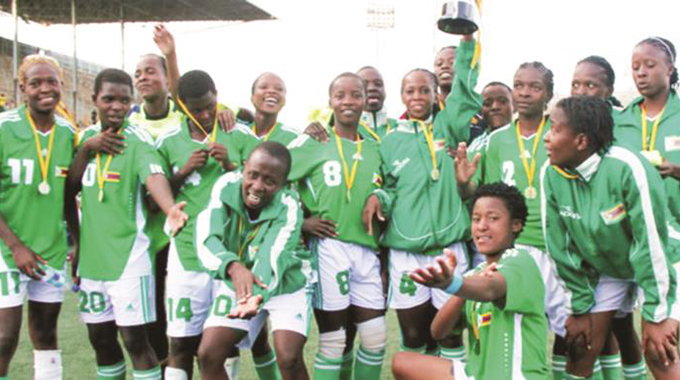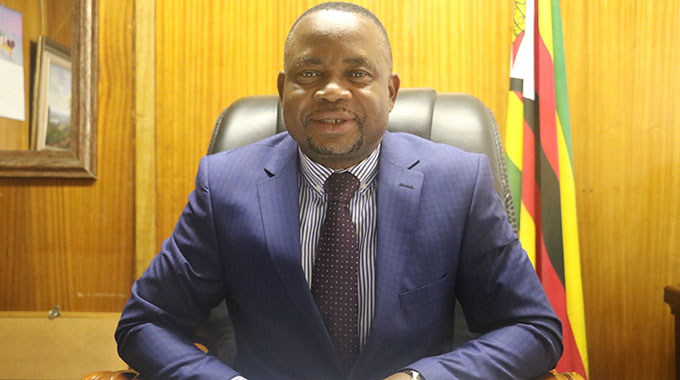Poor season for Mighty Warriors

Ellina Mhlanga Sports Reporter
THE year 2018 was not one of the best for the Zimbabwe senior women’s soccer side which has on many occasions held the torch for a nation starved of success in football. The Mighty Warriors had their dreams shattered when they crashed out of the Africa Women Cup of Nations in June when they went down to Zambia in the last round of the qualifiers.
The Mighty Warriors had taken the lead in the first leg beating Zambia 1-0 in Lusaka but could not hold on to their lead losing 1-2 in the return match in Harare.
In fact, the team would rather choose to forget about the just-ended season in which they could not carry the momentum from last year after also bowing out of the COSAFA Women’s Championship in the group stages in South Africa in September.
The Mighty Warriors were runners-up to South Africa last year when the tournament was held in Bulawayo.
But this time around they could not go beyond the group stages after finishing second in Group C.
Zimbabwe beat Namibia and Swaziland but lost 1-2 to guest nation Uganda who topped their group.
Only the group winners and the best-placed runners-up progressed to the semi-finals and Cameroon were the best-placed runners-up to join South Africa, Zambia and Uganda in the last four.
Looking at some of the senior women’s side’s achievements in the past and how they fared this year, it has been a low season for the Mighty Warriors who wrote their own piece of history in 2015 when they qualified for the Olympic Games.
They went on to compete at the Summer Olympic Games in Brazil in 2016 where they battled against Germany, Australia and Canada in their group.
Zimbabwe represented the continent alongside neighbours South Africa at the Olympics. While South Africa have continued to rise, it is a different case for Zimbabwe’s Mighty Warriors.
Banyana Banyana retained the COSAFA title and went all the way to the finals at the Africa Cup of Nations where they claimed silver after they lost to Nigeria. They also qualified for next year’s FIFA World Cup in France.
ZIFA technical director Wilson Mutekede admitted there is still a number of areas that needed to be addressed for the country to consistently perform.
“Obviously when you look at South Africa and us, the difference is one, in resources, the organisation. South Africa they have more compact structures that are there and the system is up and working.
“Whereas us in terms of further development of the girl-child we are to improve in areas where we identify them from a tender age and having centres of excellence where they should continue to be developed.
“Other countries have centres where they further bring them together and train like in South Africa, Namibia, they are doing that and Malawi is also doing the same,” said Mutekede.
The Mighty Warriors have previously defied the odds to become one of the national teams that have produced results despite the challenges such as lack of funding and having to do with limited competition in-between major tournaments compared to their counterparts in the region.
Although inadequate resources remain a challenge for local sport, a change in the attitude towards women’s football will go a long way in turning around their fortunes.
Mutekede also stressed on the importance of ensuring the coaches in charge of clubs in the various leagues have the right qualifications and said going into next year the improvement of women’s football is part of their priorities.
“The coaching still needs a lot to improve. It’s not uniform and other clubs have good coaches. I think it (the league) is also characterised by a situation where you find that some matches are not being fulfilled, they are being abandoned. So that already tells you of the quality of competition that is there.
“But look, 2019 women’s football is also part of our agenda in terms of ZIFA and the FIFA programmes that are in place. We want to make sure we put structures from Primary Schools into Secondary Schools.
“We want to see competition that is meaningful and also hopefully we are looking at trying to identify centres within provinces where the girls can then further train. I think we have lagged behind because of that.
“There must be consistent quality competition at elite level and at a lower regional level there must also be a consistent quality competition,” Mutekede said.











Comments